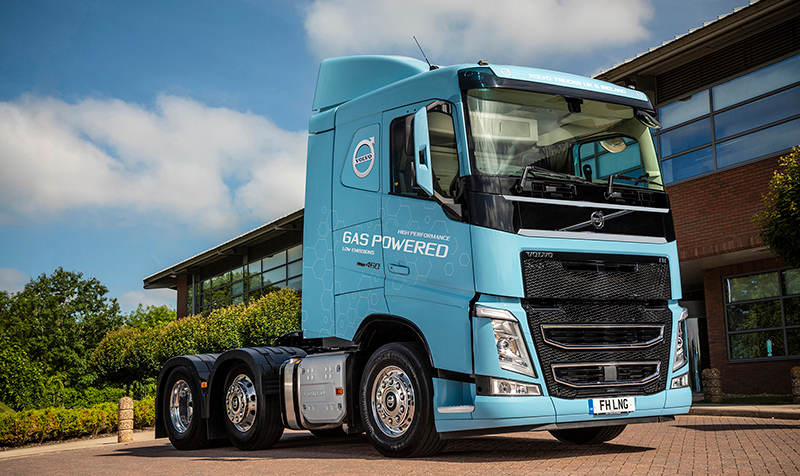Commercial vehicle fleets running on liquified natural gas (LNG) can now take advantage of the same CO2 savings being achieved by compressed natural gas (CNG)-fuelled trucks running on biomethane,
following a significant move by fuels provider Gasrec.
The firm has become the first in the UK to offer customers access to Renewable Transport Fuels Obligation (RTFO)-certificated biomethane through either a grid-connected facility (CNG) or through tanker-supplied LNG.
Natural gas-powered trucks typically see CO2 savings of around 15 per cent for long-distance motorway work, 10 per cent for regional missions and five per cent for urban applications, versus an equivalent Euro 6 diesel.
But when fuelled with biomethane, CO2 reductions are as high as 80–95 per cent, depending on the work.
“Until now, if you were a heavy truck operator and wanted to get the best carbon saving for your fleet, you needed to run a 40-tonne 4×2 tractor on grid-connected CNG and get biomethane credits,” said James Westcott, chief commercial officer, Gasrec.
“Now we can help firms unlock these same massive CO2 savings with LNG, enabling them to
take full advantage of the new 44-tonne 6×2 gas tractors from Iveco and Volvo, which require LNG for maximum range.
“We believe the opportunity to cut CO2 by 80 per cent or more, in an industry targeted with reducing greenhouse gas emissions from HGVs by 15 per cent by 2025, will hold serious sway with environmentally conscious truck operators.”
Gasrec has secured biomethane-linked CO2 savings on an RTFO- certification basis for LNG arriving into the UK through National Grid on the Isle of Grain.
The RTFO scheme is administered by the DfT to encourage the use of renewable fuels in the transport sector.
Qualification under the RTFO programme ensures fuel is from renewable sources and allows
the reporting of CO2 savings by vehicle operators.
This makes it ideal for fleets wanting to maximise their sustainability in a similar way to domestic users buying renewable electricity through the Green Energy Supply Certification Scheme.
The fuel which goes into the vehicle will not change, but certification ensures all gas sold is matched by biomethane, and that the same kilogram of biomethane is not being sold twice.
As well as reducing CO2 output, a truck running on natural gas is cleaner and quieter than a comparable Euro 6 diesel.






